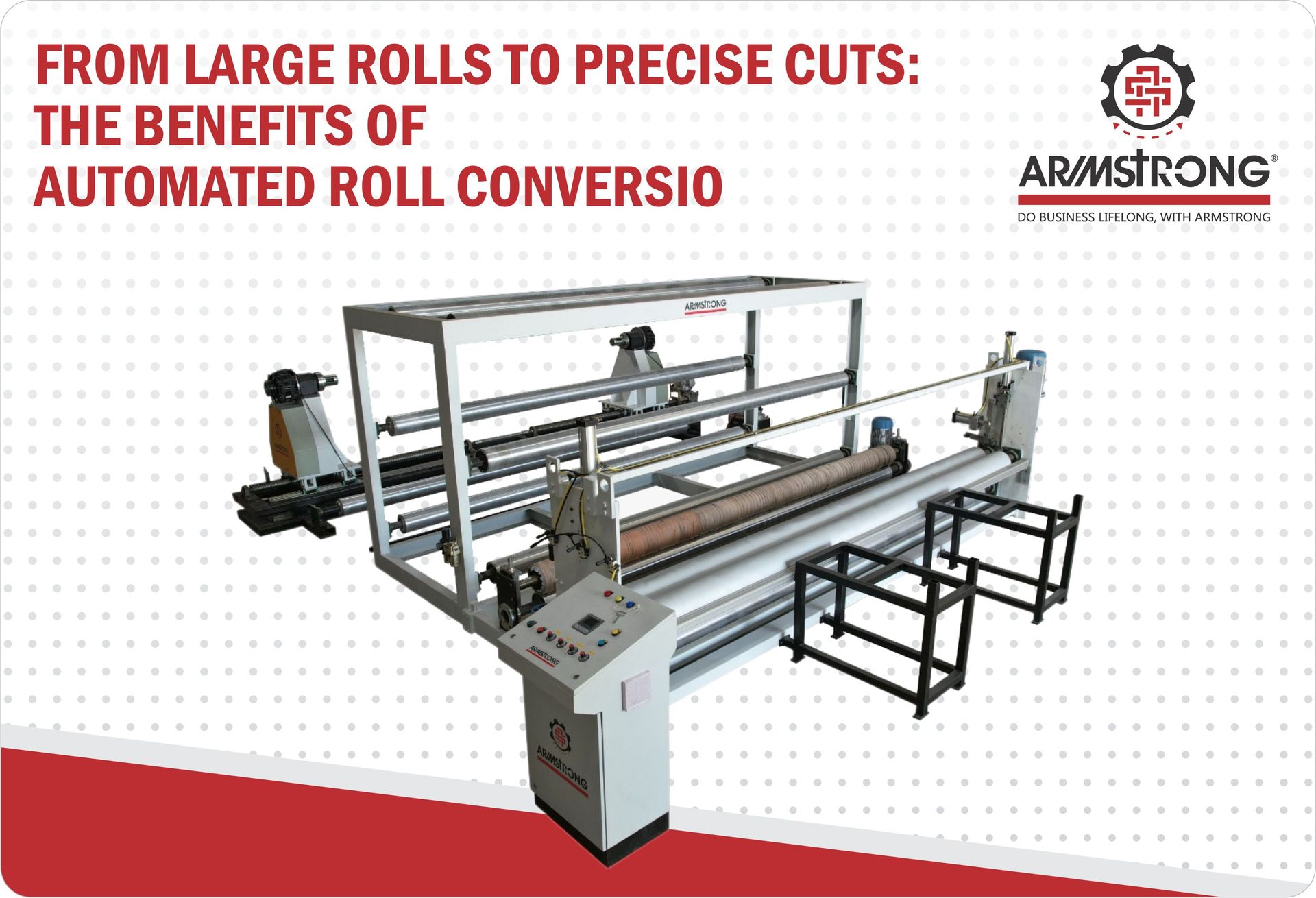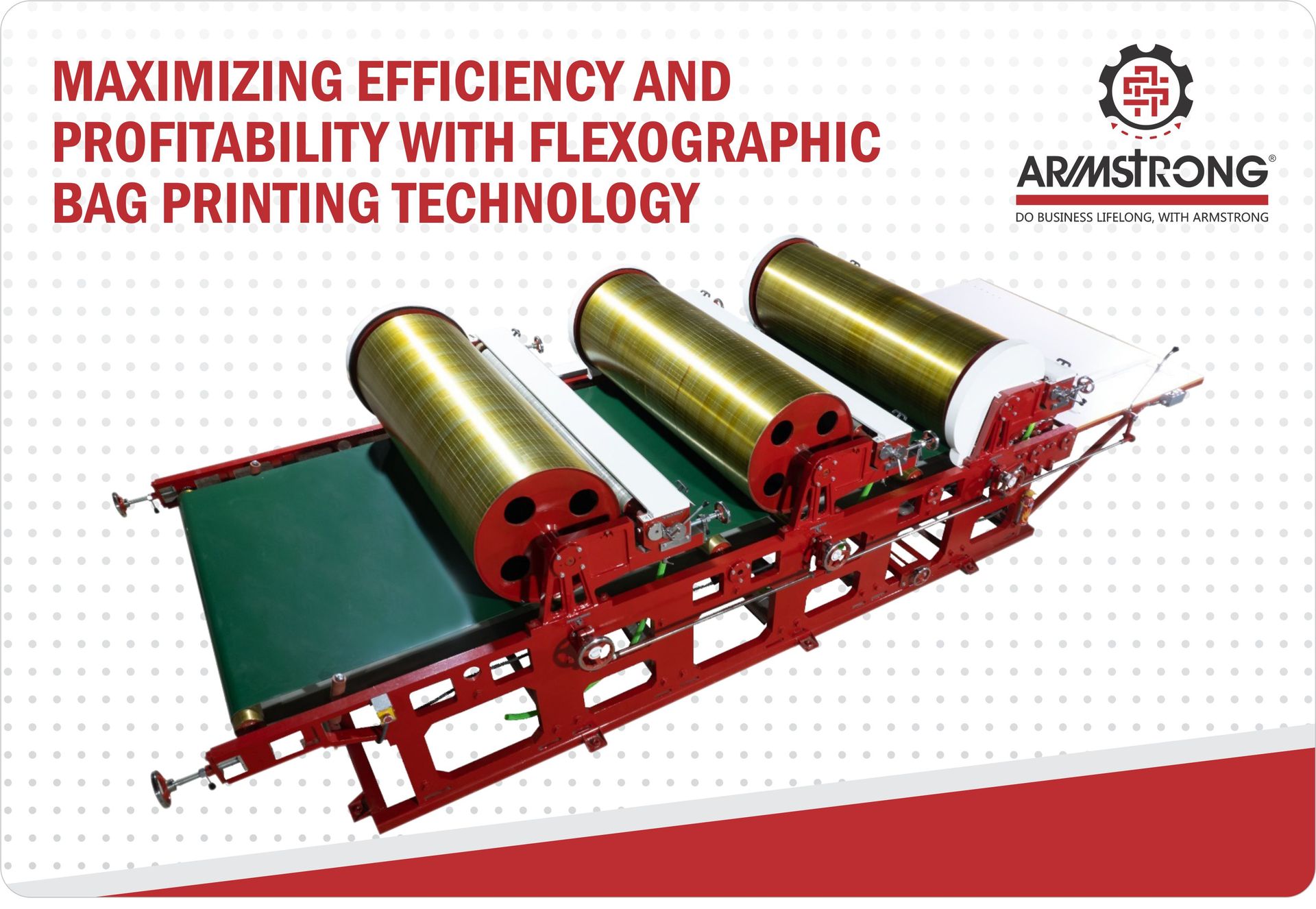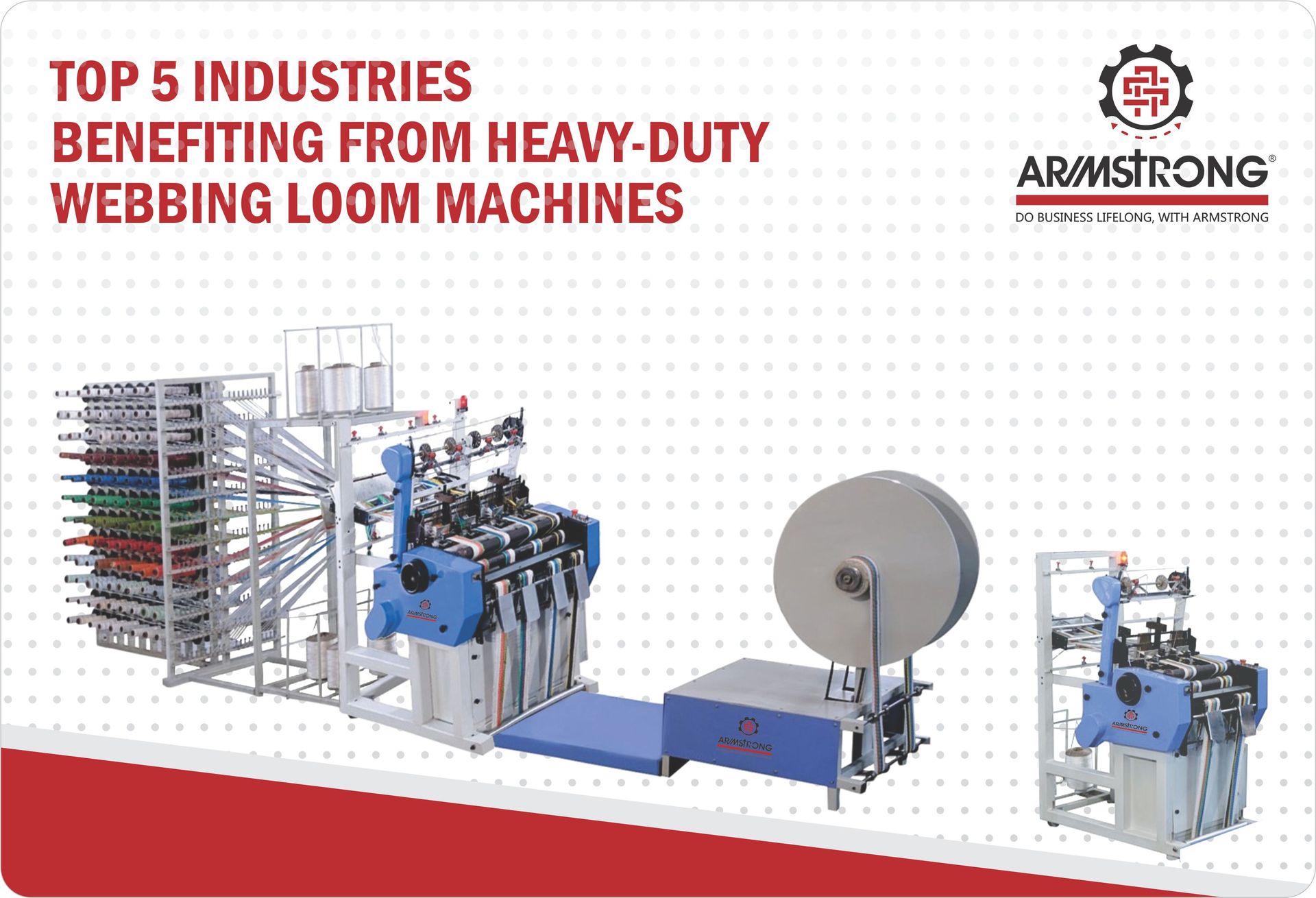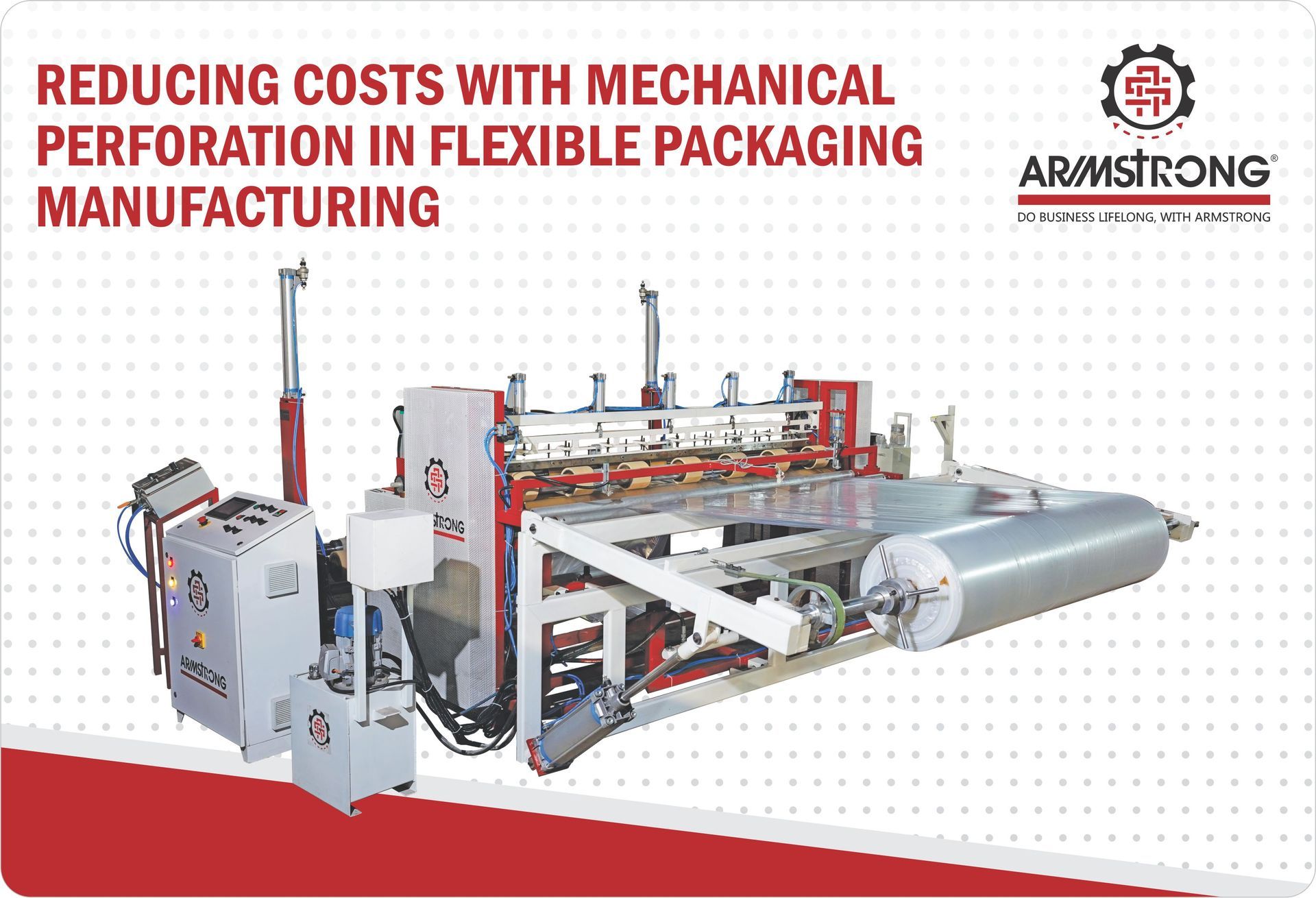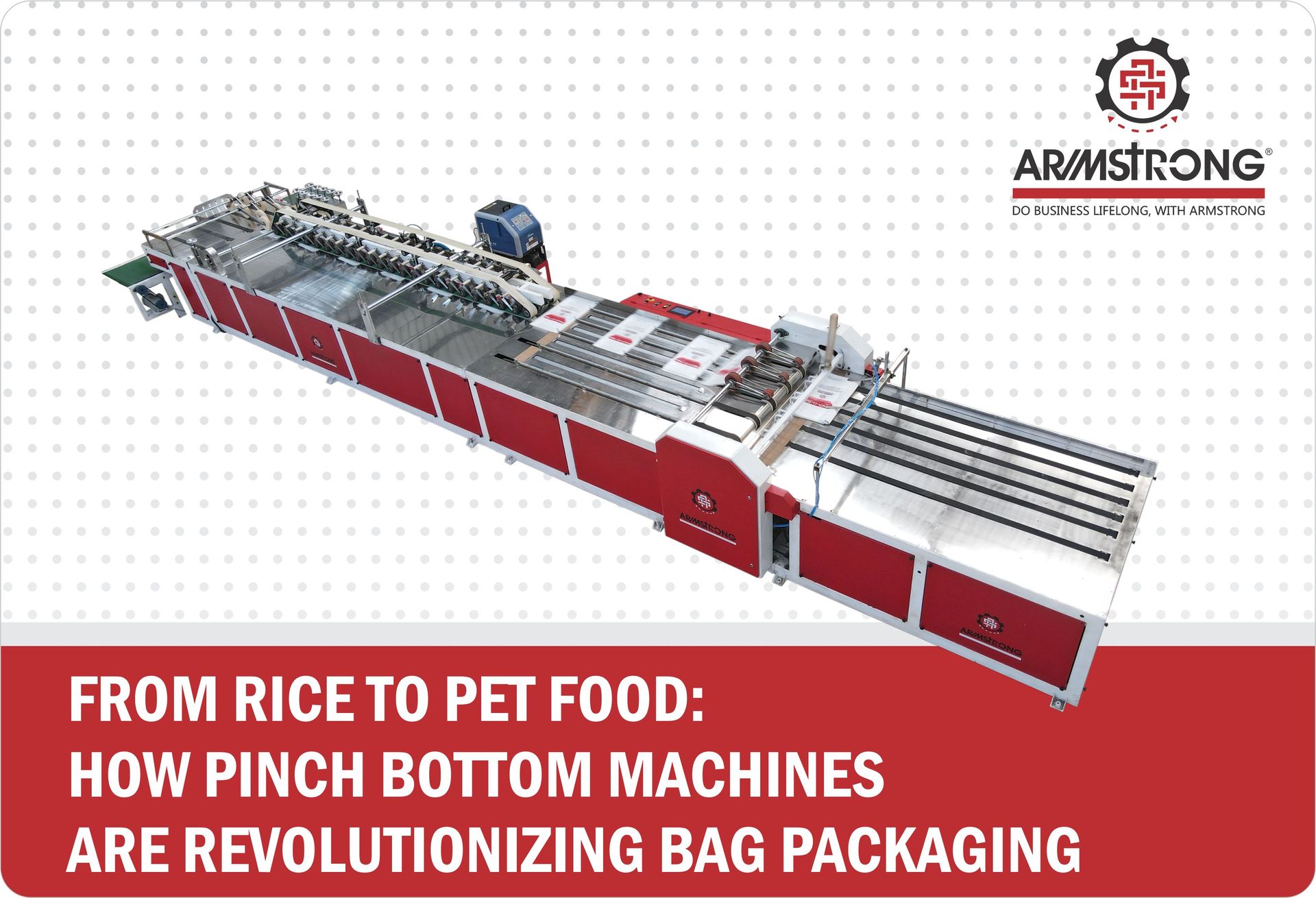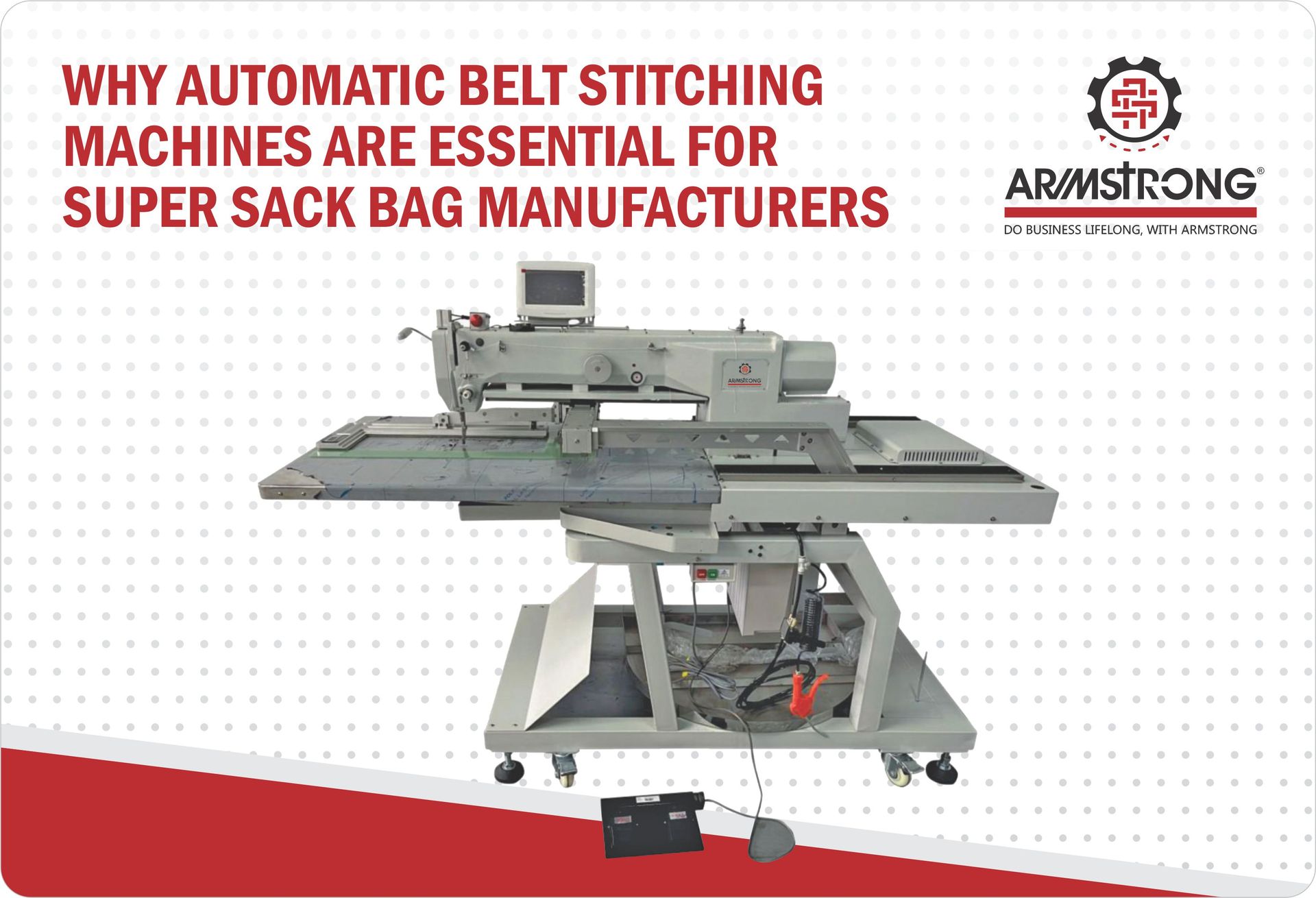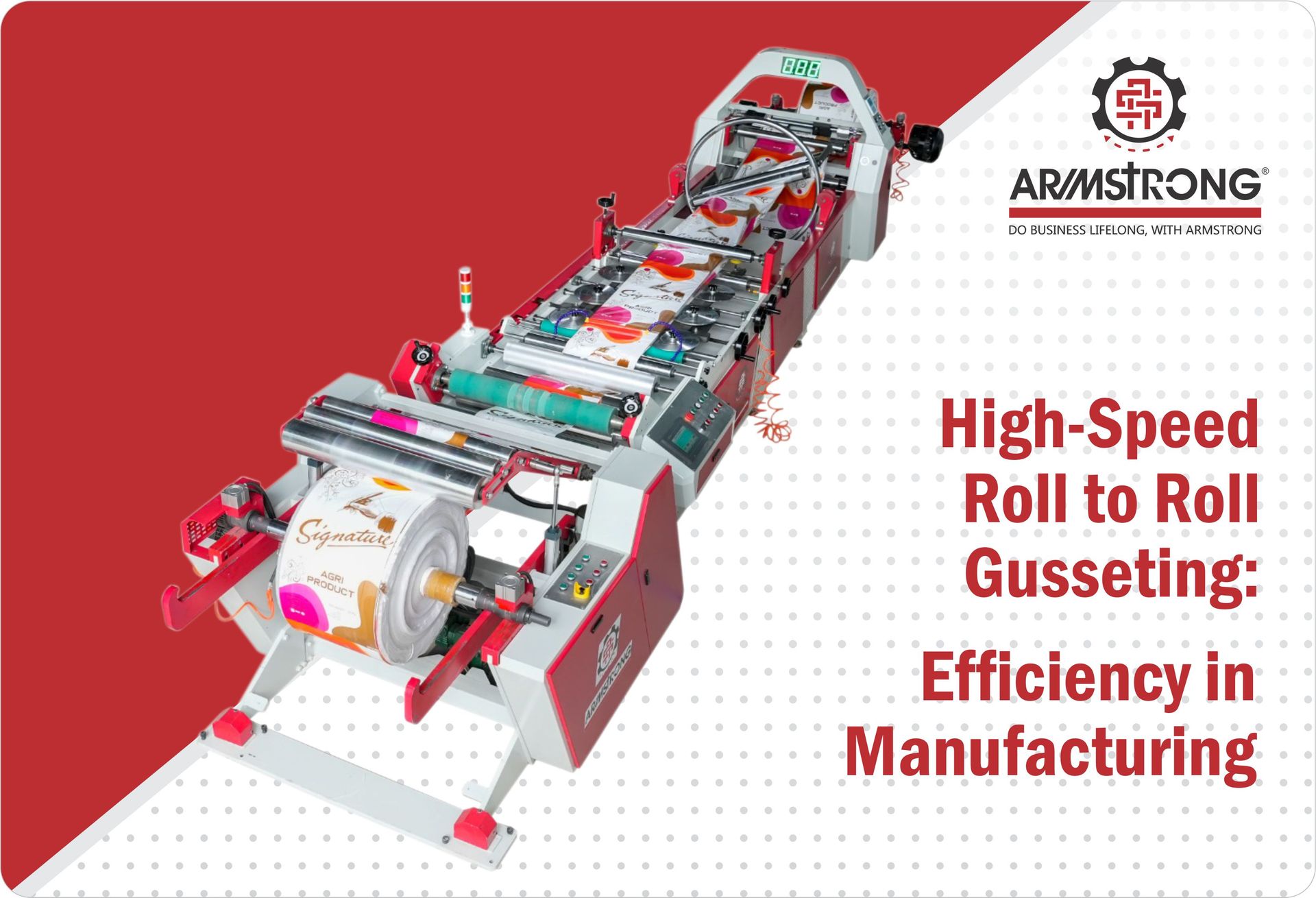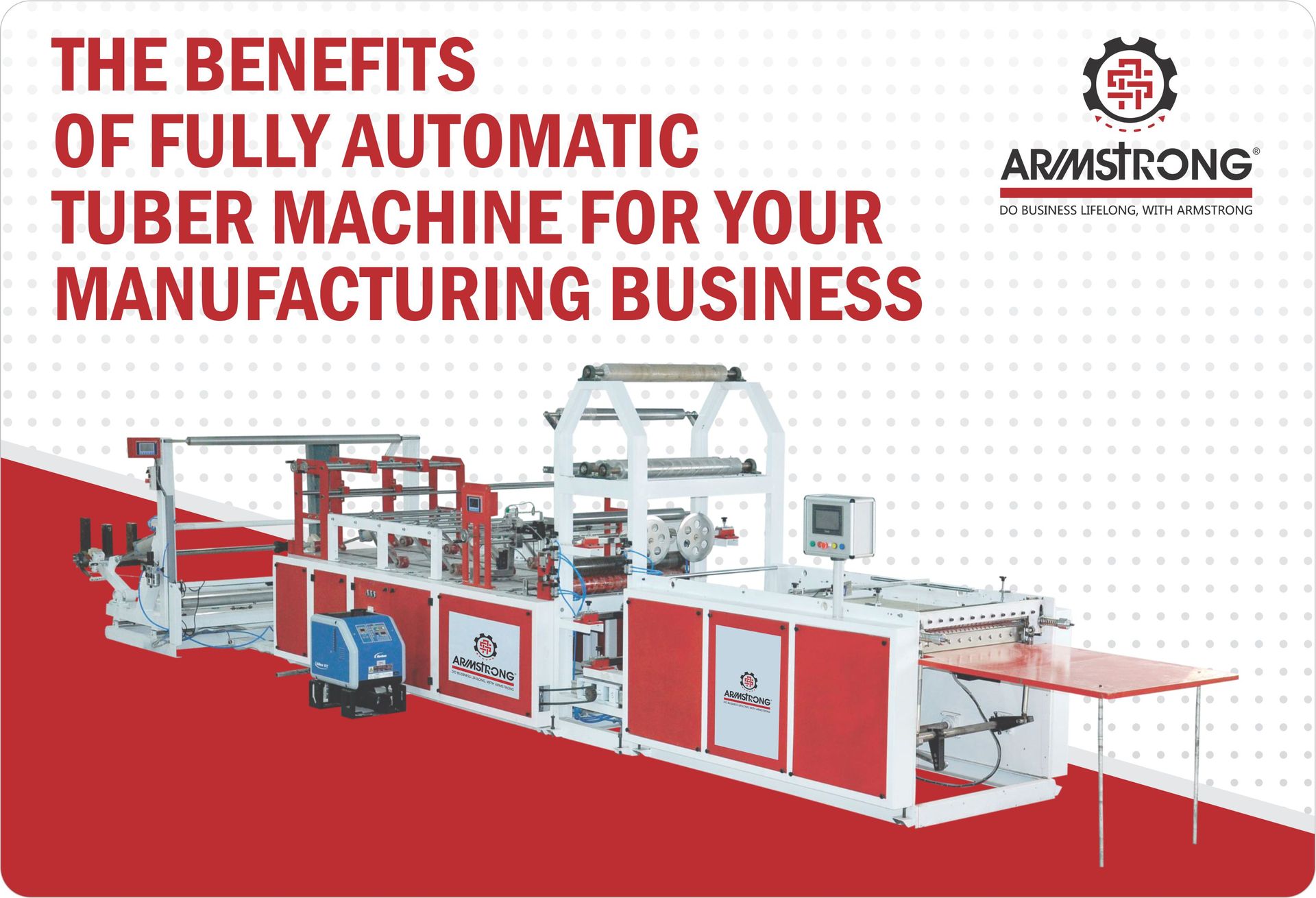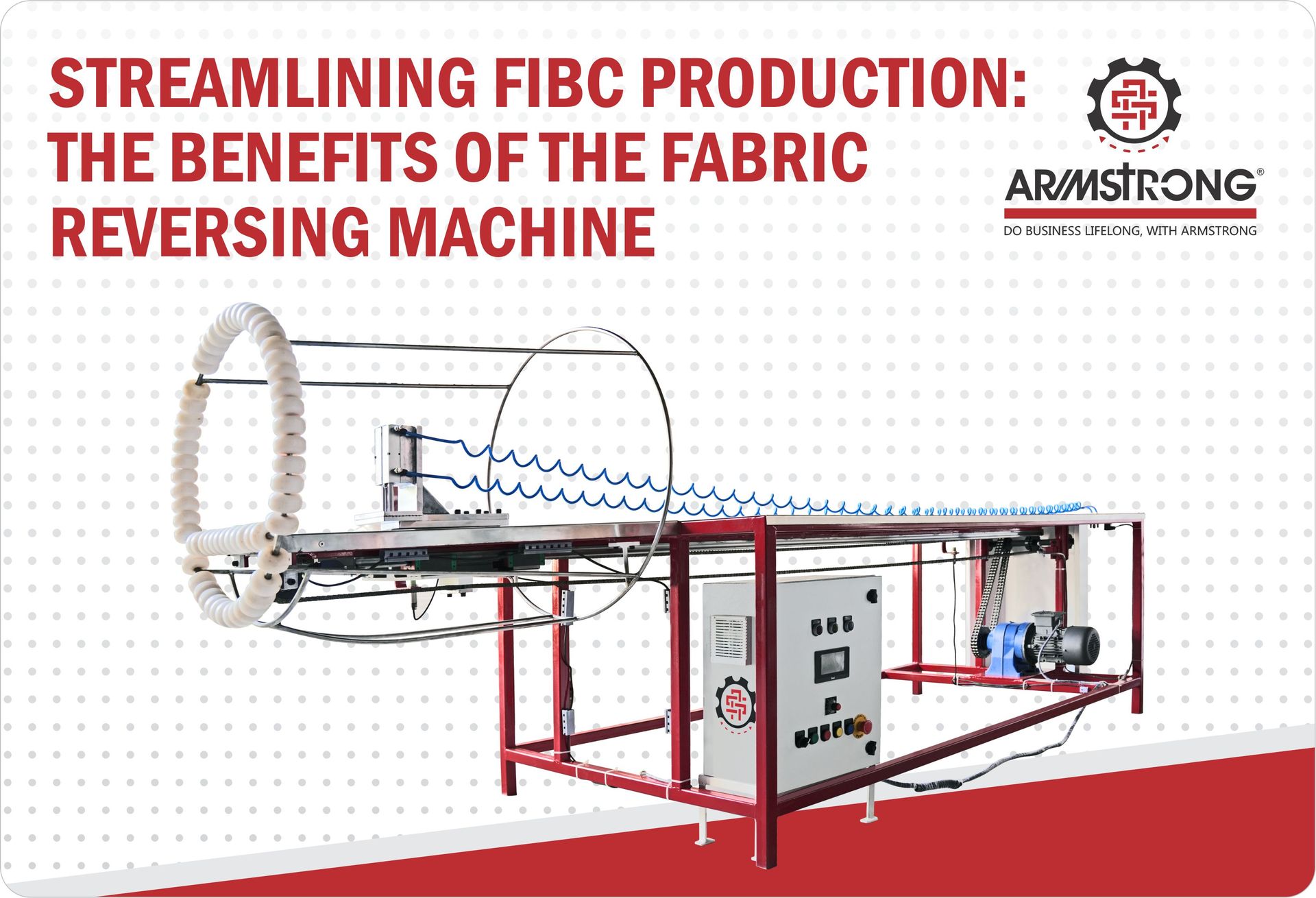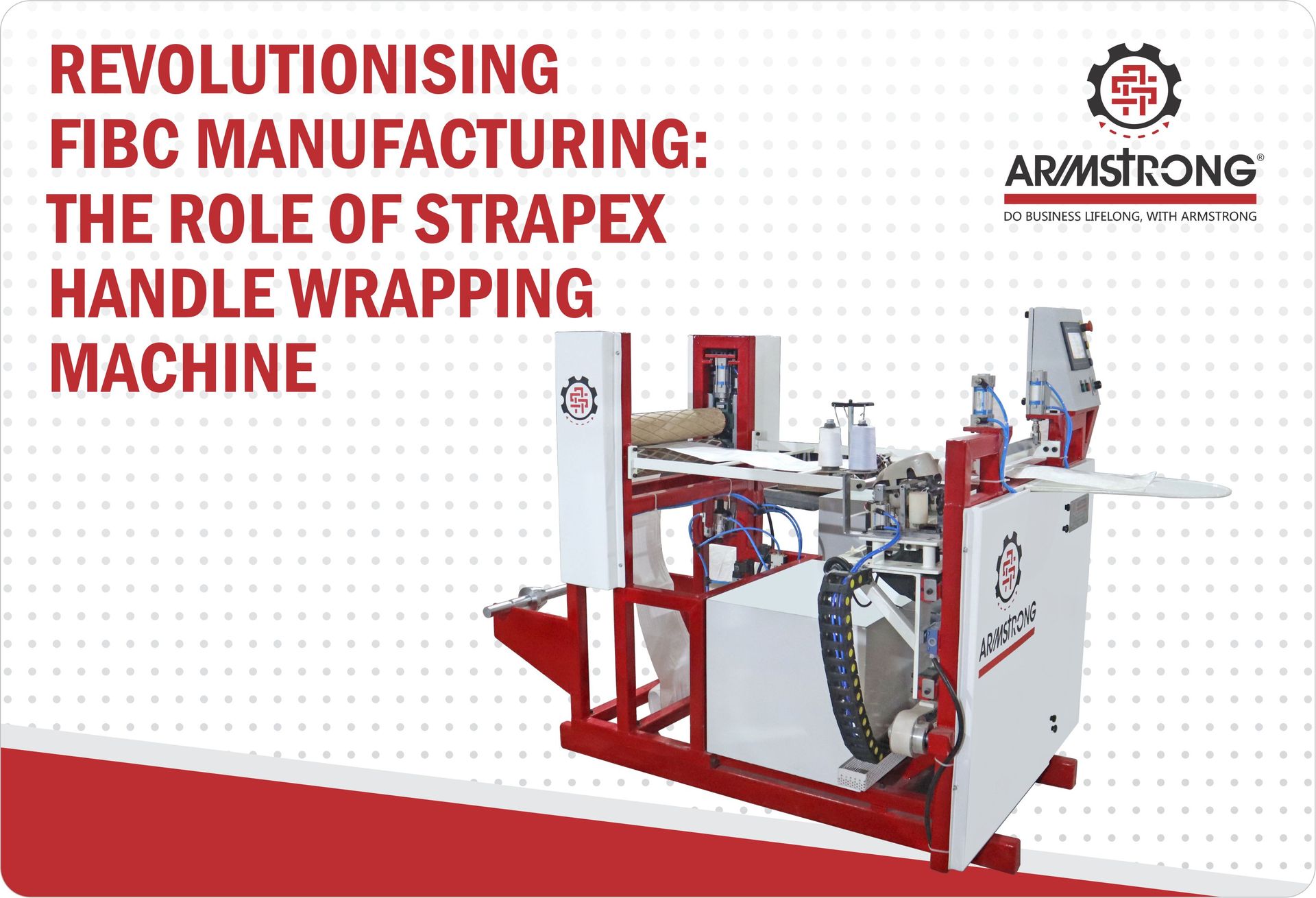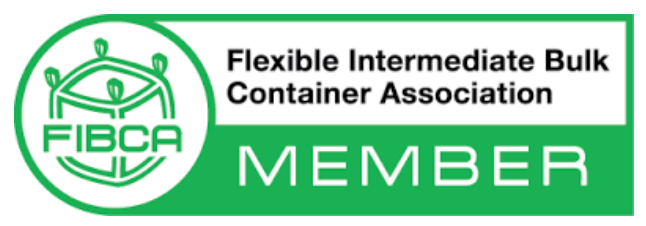Get in touch
555-555-5555
mymail@mailservice.com
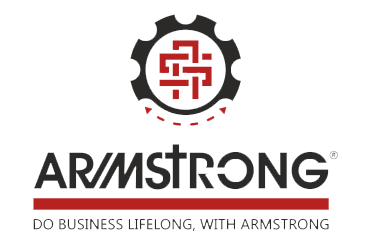
The Ultimate Guide to Inserting BCS Machines for Woven
Sacks
A necessary product in the contemporary packaging sector are woven bags. These sturdy
and versatile bags are widely used to transport materials like chemicals, cereals, seeds, and
cement in a number of industries, including construction and agriculture. Machines for
Bottom Closure Sewing (BCS) are necessary to guarantee the efficiency and quality of
woven sack manufacturing. The complexities of BCS machines, their significance,
installation procedures, and recommended practices for preserving peak performance will all
be covered in this article.
What are BCS Machines?
Machines known as Bottom Closure Sewing (BCS) are specialized tools used to sew woven
bag bottoms firmly. These devices make sure that the sacks are able to contain their
contents without spilling, offering a dependable closure that can resist handling and transit
abuses.
What Makes Armstrong BCS Machines Unique?
Armstrong’s BCS machines are at the forefront of innovation in the woven sack industry.
Here's what sets our machines apart:
● Servo Motor Precision: Our machines utilize advanced servo motors for precise
cutting lengths, ensuring consistency and accuracy in every bag produced.
● High-Speed Conversion Line: Our machines can achieve up to 30-45 bags per
minute and streamline the production process by doing tasks like cross-cutting,
bottom folding, stitching, and stacking.
● Versatile Fabric Widths: Our machines are built to accept a wide range of bag sizes
and types, with the capacity to handle fabric widths spanning from 300 to 800 mm.
Key Components
● Servo Motor: Provides precise control over cutting lengths.
● High-Speed Conversion Line: Manages cross-cutting, bottom folding, stacking, and
stitching efficiently.
● Control Panel: Enables operators to monitor the process and set parameters.
● Feeder and Conveyor System: Ensures smooth movement of sacks through
different stages.
● Sewing Head and Cutter: Critical for securing the bottom closure and trimming
excess material.
Importance of BCS Machines
BCS machines are vital for several reasons:
● Durability: Ensures the sacks are securely closed, enhancing their strength and
durability.
● Efficiency: Automates the sewing process, reducing labor costs and increasing
production rates.
● Consistency: Offers consistent stitching, upholding excellent standards for every
sack.
● Safety: Lowers the possibility of product loss and spills during handling and
transportation.
Applications of Woven Sacks for BCS Devices
Food Sector
● Transporting and storing grains, seeds, and other agricultural items safely is
essential. The sturdy stitching guards against infection and spills.
● Manage large quantities of fertilizers, making sure they are packaged securely and
delivered without leaking.
Building Sector
● In order to minimize loss and contamination, woven sacks are a necessary
packaging material for building materials like sand and cement.
● Pack and move aggregates and other building supplies securely.
Chemical Sector
● Make sure to package chemicals, powders, and granules securely, keeping them
away from moisture and contamination.
● Provide safe and dependable packaging solutions for a variety of industrial items.
Final Products
● Bulk food goods such as wheat, sugar, and salt should be packaged to maintain
safety and hygienic conditions.
● Pet food should be packaged securely to preserve freshness and avoid spills.
● Reusable and long-lasting woven bags provide excellent Retail Shopping Bags
options.
● Customizable woven bags for marketing reasons are a reliable and eye-catching way
to promote your business.
Preparing for BCS Machine Installation
Assessment of Production Needs
Before integrating a BCS machine, conduct a thorough assessment of your production
requirements:
● Determine the number of sacks needed daily.
● Consider the size, material, and intended use of the woven sacks.
● Space : Determine how much room is needed for installation and operation.
Selecting the Right Machine
● Choose a BCS machine that aligns with your production goals. Armstrong offers a
range of machines customised to various scales of operation, from high-volume
automatic machines to more versatile semi-automatic models.
Site Preparation
● Ensure your installation site is ready:
● A stable surface is crucial for machine stability and accurate operation.
● Sufficient illumination is necessary for upkeep and observation.
● A constant power source is necessary to avoid interruptions and ensure continuous
functioning.
● Maintaining optimal operating temperatures and heat dissipation depend on proper
ventilation.
Installation Process
Unpacking and Inspection
● Unpacking: Carefully unpack the machine and check for any signs of damage during
transit.
● Component Verification: Ensure all parts, including the servo motor, sewing head,
conveyor system, and control panel, are present and intact.
Positioning the Machine
● Placement: Position the machine in the designated area, ensuring stability and level
alignment.
● Component Alignment: Align the feeder, sewing head, and conveyor system as per
Armstrong guidelines.
Electrical Connections
● Power Connection: Attach the device to the power source, making sure that all
electrical connections are safe and adhere to safety regulations.
● Grounding: To avoid electrical risks and guarantee safe operation, proper grounding
is crucial.
Initial Setup and Calibration
● Parameter Setting: Use the control panel to set initial parameters such as cutting
length, sewing speed, and bag dimensions.
● Test Run: Conduct a test run with sample sacks to verify proper operation and
stitching quality.
Advancements in Armstrong BCS Machines
Armstrong’s BCS machines incorporate the latest digital technologies to enhance precision
and efficiency:
● Digital Control Panels: Provide easy-to-use interfaces for setting parameters and
monitoring operations.
● Automated Diagnostics: Enable quick identification and resolution of issues.
● Remote Monitoring: This allows for remote monitoring and control, increasing
operational flexibility.
● Energy efficiency: aimed at lowering use while increasing productivity.
● Eco-Friendly Materials: Capable of handling environmentally friendly materials in
compliance with global sustainability goals.
● Customization and Flexibility: Armstrong’s BCS machines offer unparalleled
customization and flexibility.
● Easy Configuration: Quickly switch between different sack sizes and materials
without extensive reconfiguration.
● Adaptability: Suitable for a wide range of applications, from agriculture to
construction.
Conclusion
Your woven sack production line will benefit from a strategic investment that increases
quality, efficiency, and longevity when Armstrong's BCS machines are integrated. Through
comprehension of the distinct attributes of our equipment, appropriate site setup, and
adherence to optimal procedures for both operation and upkeep, it is possible to optimize
your production potential and proficiently satisfy the requirements of diverse sectors.
Armstrong is committed to offering innovative solutions that propel your business success.
Our cutting-edge BCS machines are made to the highest levels of quality and efficiency.
They come with high-speed conversion lines and precise servo motors. Join Armstrong in
embracing the future of woven sack manufacturing and enjoy the advantages of cutting-edge
technology and unrivaled dependability.
The one and only complete solution providers of high-quality industrial finishing machines and spare parts.
079-27543747 | +91 63587 40011/16
info@armstrongex.com
Address
OFFICE
501, ‘Sarap’, Opposite Navjivan Press
Ahmedabad, GJ - 380014, India
FACTORY
Unit 1
Plot no. A2/502-1,
Opp. Indo-German Tool Room
Phase - 4, GIDC Estate
Vatva, Ahmedabad, Gujarat 382445, India
Unit 2
44+45/A/1, Near. Ambica Bridge, Phase - I, Vatva GIDC, Ahmedabad, Gujarat 382445
